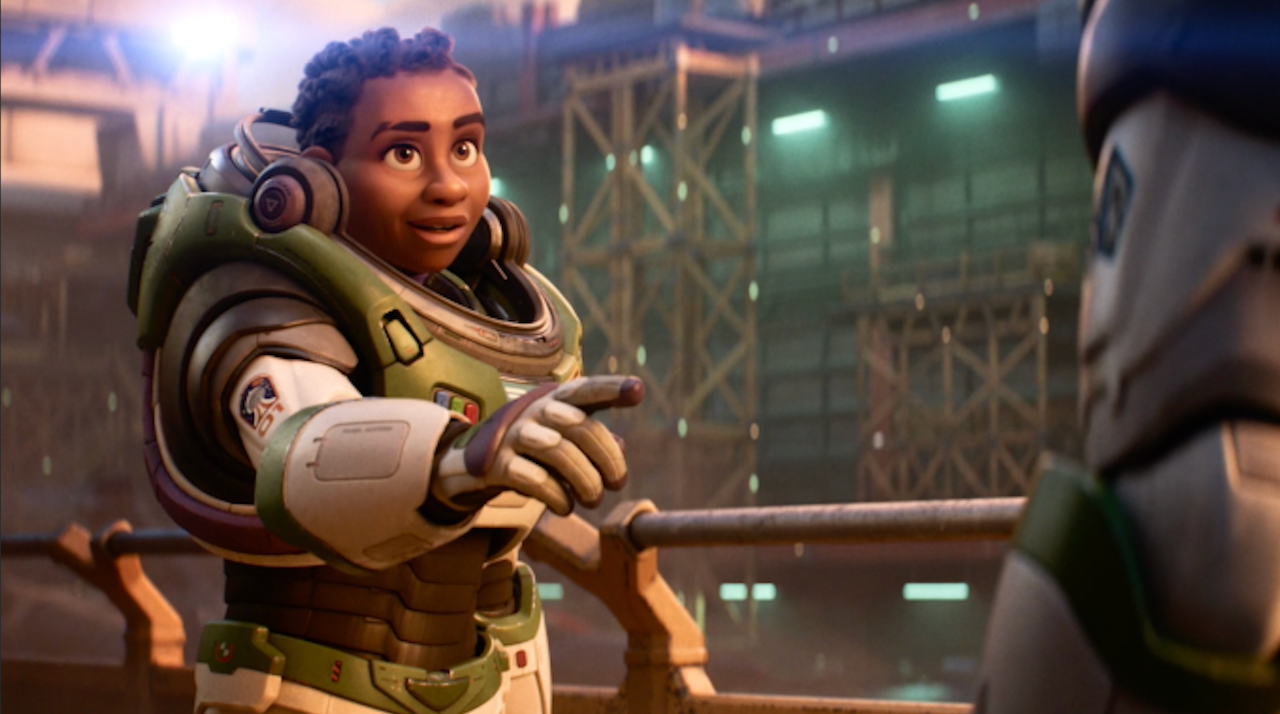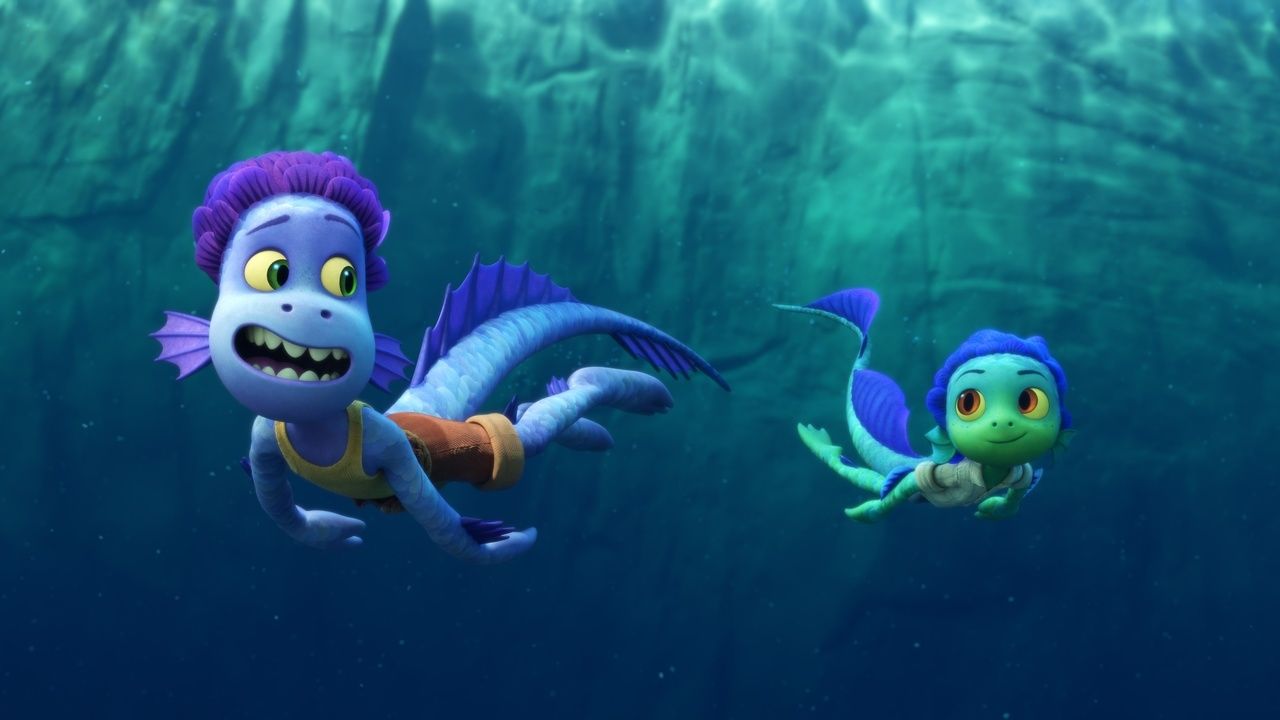On March 9th, 2022, LGBTQIA+ employees and allies at Pixar Animation Studios sent a letter to Walt Disney Company leadership saying the studio had actively censored "overtly gat affection" in its films, according to Variety. The Pixar employees' allegations were made as part of Disney employees' larger outcry over the company's response to the "Don't Say Gay Bill" in Florida. The first announcement about Pixar's censorship of LGBTQIA+ content didn't come with any news about what films had been impacted. But now, a source close to the production of Pixar's Lightyear—starring Chris Evans as the real-life inspiration for the Toy Story character Buzz Lightyear—said a lesbian kiss was originally cut from the film.
The plan was always for Pixar's Lightyear to include the character Hawthorne, voiced by Uzo Aduba, who is in a meaningful relationship with another woman. But while her lesbian identity was never in doubt, the studio initially cut a kiss between Hawthorne and another woman from the film. However, following the uproar over the Disney CEO Bob Chapek's botched response to the "Don't Say Gay Bill" in Florida, as well as the outcry due to his March 7th company-wide memo stating the "biggest impact" Disney can make "is through the inspiring content we produce," Pixar has decided to reinstate the same-sex kiss. Lightyear is the first Pixar film since 2019 to open in movie theaters rather than on Disney+, making the studio's decision all the more meaningful.
As long as Pixar doesn't change its mind again, the decision to include a lesbian kiss is a major turning point in LGBTQIA+ representation—and not just for Pixar films, but for feature-length animation in general. The genre has generally shied away from showing queer characters in any meaningful way; remember the gay cops in Pixar's Onward? What a faceplant! With the new information about Pixar's censorship of gay content, it's hard not to look at that film in a new light.
In addition to Onward, in Pixar's 27-year history, there have been a handful of other queer characters in its films, like Toy Story 4's two moms hugging, Finding Dory's lesbian couple, and the short film Out, about a gay man struggling to come out to his parents. Variety reported that according to Pixar creatives who spoke to the outlet on the condition of anonymity, "creatives within the studio have tried for years to incorporate LGBTQ identity into its storytelling in ways big and small, only to have those efforts consistently thwarted."
Pixar Censored LGBTQIA+ Content in Luca, Soul, and Inside Out
For Pixar's 2021 release Luca about two young sea monsters, two sources who spoke to Variety said that the human girl, Giulia (Emma Berman), who befriended Luca (Jacob Tremblay), was supposed to be queer. However, the creative team was stymied by how to tell the story without also creating a girlfriend for the character. "We very often came up against the question of, 'How do we do this without giving them a love interest?'" one source who worked at the studio told Variety. "That comes up very often at Pixar."
Variety reported that Pixar has frequently had "difficulty incorporating queer representation even as part of the background." In addition to same-sex couples being "removed from the background" of Pixar films, multiple sources told the outlet that most "efforts to include signifiers of LGBTQ identity in the set design of films located in specific American cities known for sizable LGBTQ populations — namely, 2020's Soul (in New York City) and 2015’s Inside Out (in San Francisco) — were shot down. One source said that a rainbow sticker placed in the window of a shop was removed because it was deemed too 'distracting.'"
"Nearly every moment of overtly gay affection is cut at Disney’s behest, regardless of when there is protest from both the creative teams and executive leadership at Pixar," Pixar employees said in their open letter. "Even if creating LGBTQIA+ content was the answer to fixing the discriminatory legislation in the world, we are being barred from creating it."
The Walt Disney Company frequently pulls its theatrical releases from countries that violate basic human rights for other types of human rights abuses. In 2011, the United Nations decided LGBTQIA+ rights are human rights, and there is no reason the protection and well-being of queer people should be treated any differently than anyone else.


